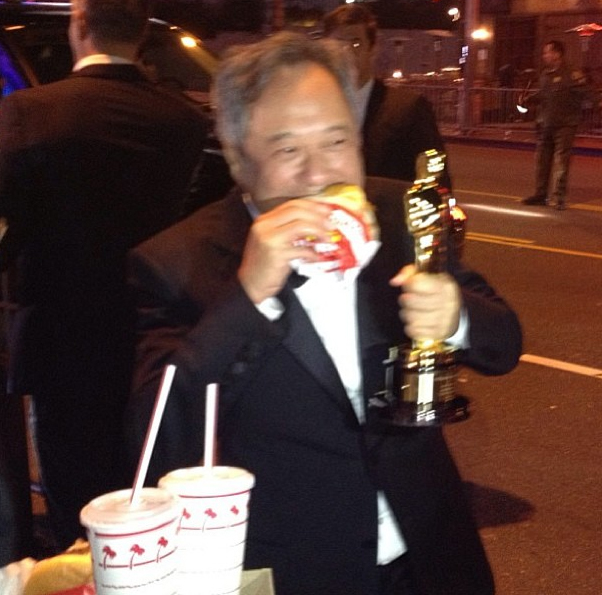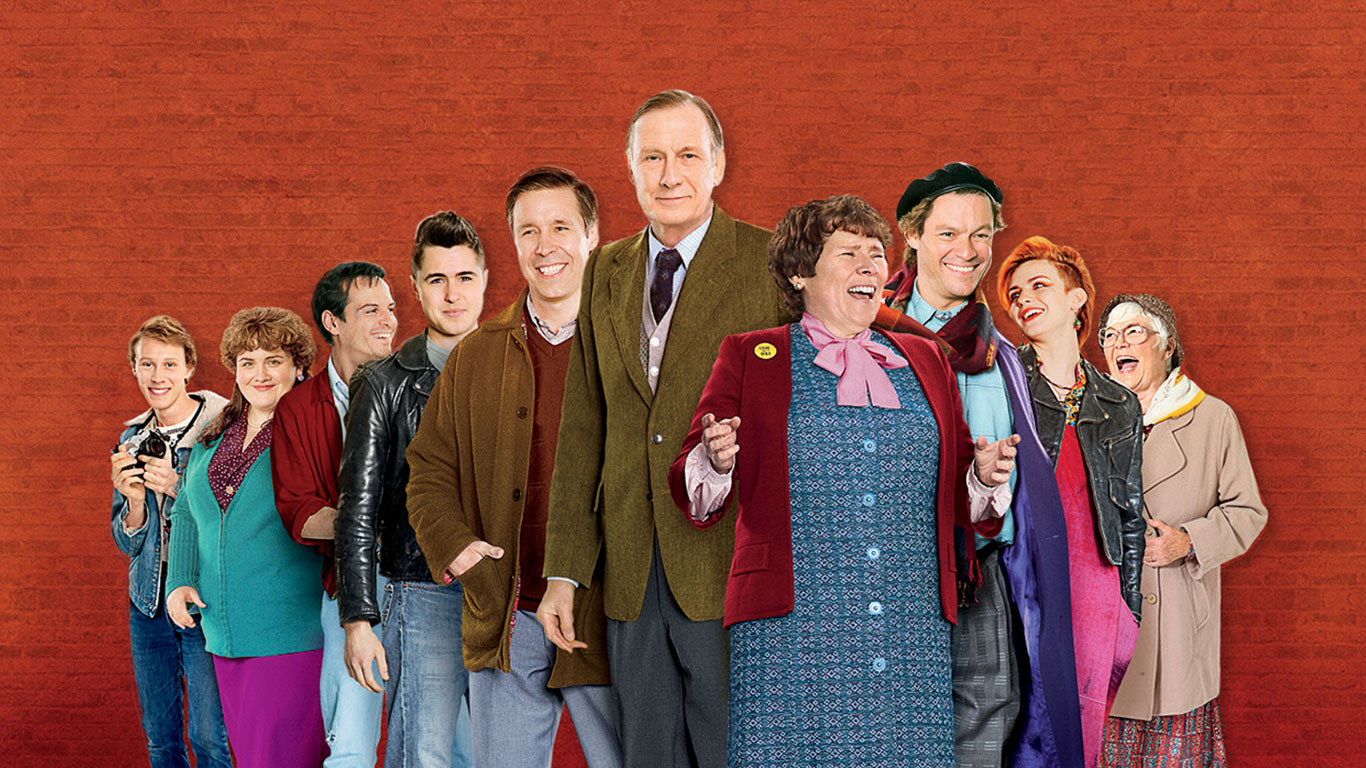I've been sitting on half formed think pieces about all of this for a couple of weeks deciding whether to publish but here goes. Bear with me.
A very recent article at Wired about journalist behavior at Sundance made a lot of journalists angry. I agree that a lot of movie journalists are jaded (I think that about other Oscar bloggers all the time who don't see to love it like I do). Yet the piece isn't really fair because there are terribly behaved people of all types of badges at festivals. The type of badge you wear does not influence your behavior. Your character influences your behavior. Still there's so much online response and twitter uproar about this that it reminded me of all the potshots taken at Birdman's depiction of a critic (in a movie that is not meant to be taken literally at that).
In short: a lot of media writers have thin skins. I'd include myself here I must say but I think it's better to take your lumps quietly than protest too much. (Movies.com had a similarly themed piece on bad movie etiquette but it was more generous and didn't point too specific a finger.)
The uproar over these pieces reminded me of my own discomfort about the way people react to Oscar snubs (or omissions if the "S" word offends you). This season in particular, the Selma situation has provoked a lot of criticism,...

When you're snubbed it's usually wisest to just say "I was disappointed" and leave it at that. Something more clever will also do like an "Um...". You can even film an elaborate meta companion to your movie. Take the case of Sweden's Oscar shut-out Force Majeure. EW offered up a sound theory as to why it was passed over by the Academy and they included the now infamous "video snub" reaction of Ruben Ostlund which you can see below if you missed it when it was making the rounds. It's so perfectly reflective of his movie, which mocks its protagonist for his easily damaged ego and his "ugly man cry" that it's hard for me to think it's real. It's gotta be staged, right?
Here's when it's okay to bitch about an Oscar snub...
When history backs you up 100% it's absolutely fine to take shots. But not in the moment. A short time ago Spike Lee said 'fuck 'em' referring to his own brick wall meeting with Oscar buzz back in 1989 and who wouldn't co-sign that?
Nobody’s talking about motherfuckin’ Driving Miss Daisy. That film is not being taught in film schools all across the world like Do the Right Thing is. Nobody’s discussing Driving Miss Motherfuckin’ Daisy. So if I saw Ava today I’d say, ‘You know what? Fuck ’em. You made a very good film, so feel good about that and start working on the next one.
Indeed the furor over the film's semi-dismissal got so loud that the Academy's president had to step in to speak about the Academy's efforts to diversify and also to remind everyone that Selma did get a Best Picture nomination (no small feat). Even more recently BAFTA's president had to try the "we're not racist!" defense (they gave the film zero nominations - but are blaming it on too few screenings and being a late arrival). A lot of smart think pieces like David Carr's at The New York Times mentioned the anger over an all white acting lineup and referenced the #OscarsSoWhite tag. But this particular wing of anger in this particular Oscar year -- and the year in film always needs to be a factor -- I can't really join in on even though David Oyelowo would have been in my ideal Actor lineup.
So I sort of wish he hadn't expressed his disappointment so pointedly, by again calling attention to the Academy's demographic.
“Yeah, it bothers me,” he said. “It bothers me because it’s the best reviewed film of the year. It’s a film that doesn’t direct or act itself...
The great thing is that the film is transcending all of that in terms of its notoriety and people loving the film, but that situation is representative of the demographic that votes for these things, and hopefully that’s going to change going forward."
I fear that blaming older white men is too easy a target and also not fair to them. It makes them into a sort of evil monolith that they aren't. Being an old white man does not mean you'll have terrible artistic taste anymore than being young black and female ensures that you'll have great taste. Though one aesthetic advantage minorities of any type (gay, black, female, Asian, whatever) do arguably have over straight white man of any age is they are more likely to be able to relate to stories about straight white men than the reverse. When nothing is created specifically for you, you learn to be very flexible in terms of your identification with stories and characters. In this way, a changing demographic in the Academy would certainly help.
 I guess I don't think the Academy is doing all that terrible a job in terms of diversity based on what is available to them. When Black actors DO get typical Oscar roles, they tend to get nominated. Oyelowo was stuck in one of the most competitive categories we've seen in years and Oyelowo wasn't the only odd man out. If we look back through the past decade we can see that things are improving. There have been 19 black acting nominees in the past 10 years (2005-2014) with 5 of them winning or, roughly, 10% of nominees and 8% of winners. That's a slight improvement over the previous ten years with 13 nominees and 5 winners. Even better news can be found in the past ten years in other categories: Ang Lee becoming the first ethnic minority to be a double winner in Best Director and we had two black nominees which is double the amount that had ever been nominated before; in screenwriting we had our first two black winners (Precious, 12 Years a Slave).
I guess I don't think the Academy is doing all that terrible a job in terms of diversity based on what is available to them. When Black actors DO get typical Oscar roles, they tend to get nominated. Oyelowo was stuck in one of the most competitive categories we've seen in years and Oyelowo wasn't the only odd man out. If we look back through the past decade we can see that things are improving. There have been 19 black acting nominees in the past 10 years (2005-2014) with 5 of them winning or, roughly, 10% of nominees and 8% of winners. That's a slight improvement over the previous ten years with 13 nominees and 5 winners. Even better news can be found in the past ten years in other categories: Ang Lee becoming the first ethnic minority to be a double winner in Best Director and we had two black nominees which is double the amount that had ever been nominated before; in screenwriting we had our first two black winners (Precious, 12 Years a Slave).
All of this is good news and maybe even arguably a good ratio considering how stacked the deck is against ethnic minorities succeeding in Hollywood where the bulk of the roles and stories seem to be made by and revolve around white men from 10-80 years of age.
The insistence that "Oscar doesn't watch black films" suggests that there were Oscar worthy performances out there in a given year that weren't being considered. While you can certainly make a case for Oyelowo and Ejogo this year in Selma as typical Oscar work who else was there really? It's easy to diss the Academy for skipping over acclaimed breakouts like Gugu Mbatha-Raw (Beyond the Lights / Belle) but honestly few white women if any would have been nominated for playing a fictional rock star in a film that wasn't a hit or starring in a period piece with decent but non spectacular reviews early in the year. Political collegiate comedies of any stripe don't exactly light Oscar's fire so there goes Dear White People. As for Get On Up my theory is that it needed better reviews and box office and maybe arriving a year or two later in Chadwick Boseman's career for traction to happen. As has been discussed many many times on this site and others, the Academy tends to make men wait for their first nomination until they are a bit seasoned and it's only his second leading role of note.
I'm not saying that racism doesn't factor in. Lord knows the Obama years have taught us that racism is still alive and well (boy are future generations going to be gobsmackingly embarrassed about how much people lost their shit when a Black man was in the White House). And ironically the same media that bitched so much about Selma's treatment by the Academy were the ones who got so caught up in its "LBJ" representation which was a far more racist situation given that it was, at its core, about protecting and elevating LBJ as some sort of white savior and in a bigger picture way about who gets to lay claim to history (read this Mark Harris piece if you haven't yet).
 Gugu in Beyond the Lights. Rock star movies aren't the Academy's cuppa unless they're huge bloated biopics of dead or ancient rock stars
Gugu in Beyond the Lights. Rock star movies aren't the Academy's cuppa unless they're huge bloated biopics of dead or ancient rock stars
I'm only saying that while it's easy to bitch about perceived wrongs, it's smarter to survey each field and get to the root of the real problems rather than being angry about the symptoms. By all means bitch when a great performance goes unrecognized. But don't bitch at the Academy if the studios don't give great roles to black actors or if they suddenly won't abruptly change their entire personality to honor a film like Dear White People. That's a larger issue about aesthetic discernment and genre biases that we can and should have outside of the thorniness of conversations about representation and color.
The Oscar body changes slowly over time but they don't and will never vote in a vacuum. Critics and moviegoers also subtly or sometimes baldly affect their preferences via reviews and public discourse and media coverage and perceptions of "success" (often an aphrodisiac). If more critics and moviegoers keep their minds open about what types of movies can be worthy (even critics and the public fall into this tunnel vision trap about "important" + "true story" = great) than Oscar might too. And we'll certainly get more diversity of voices in our movies if we nurture filmmakers like Ava DuVernay with our ticket dollars; that's true of filmmakers of all underrepresented voices. Minority audiences are just as culpable as anyone for not supporting cinema that they should. Gay films, for one example, have had a very tough time for the past decade connecting with their audiences theatrically (and audience that used to come out for movies about them). I mean, Pride, would have been a large success if a lot of gay people had shown up for it in droves since it was an indisputable crowd pleaser and word of mouth would have exploded with a big enough base. More artistically leaning black films also often run into indifference financially.
 zero nominations. only 1.4 million at US box office.
zero nominations. only 1.4 million at US box office.
Vote with your ticket dollars when it comes to seeing diverse voices on screen or behind it. And when you want to complain about someone not being nominated, make sure you think of them as one of the five best in that category within that year and you are truly comfortable leaving dozens of others off the list in order to have them there. Context always needs to be considered and it rarely is when anyone wants to make a point.